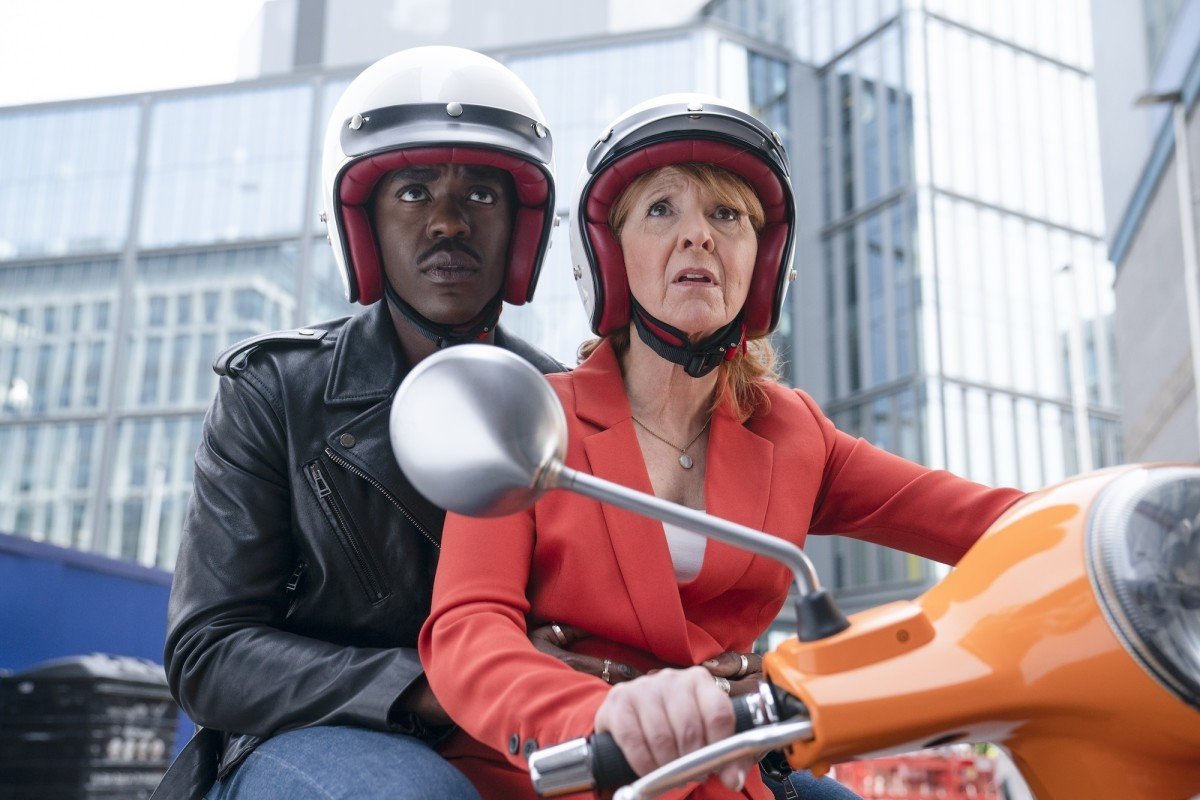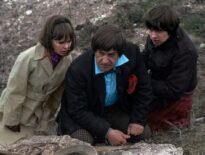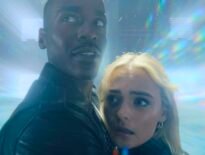So here we are. The dust has settled (if you’ll pardon the pun) on Doctor Who’s 40th/14th/1st series/season, and the internet has been… absolutely normal about it. I think I experienced all seven stages of grieving in the hours following the finale (which, sadly, consumed my entire Saturday, since I live in Australia and the new series drops at 9am here), and I think that’s a good thing.
To get the obvious out of the way: no, I did not hate the finale, and this review isn’t going to bash it or Russell T Davies. I have issues with it – like I do for almost every single other episode of the show that I have ever seen – but overall, I liked it. And with that in mind, let’s start with some of those likes.
Firstly: Doctor Who has truly never looked better. And I think I have said that aloud during every episode of this season, but wow. The CGI for Sutekh and the Time Vortex – just wow. Yes, I do, in a way, wish that Sutekh were still just a fellow in a mask like in Pyramids of Mars, but if he had to be a CGI creation, this is as good as it can possibly get, so massive props to the visual effects team for their work here.
While I am going to outline some problems I personally had with the pacing and story a little later, it’s also worth repeating (again and again and again) how much Ncuti Gatwa is the Doctor, and how much life he brought to this episode. This is the second time this season where he has moved me to tears without saying a word, and his performance and charm and heart(s) are just astonishing to watch. Similar plaudits to Millie Gibson, who has grown on me a considerable amount over the season, and of course to Bonnie Langford, Jemma Redgrave, Lenny Rush, Susan Twist, and the (astoundingly villainous) voice of 91-year-old Gabriel Woolf. The performances here blew me away.
Also worth mentioning here that I adored the scene between the Doctor and Kind Woman (played by the amazing Sian Clifford), even if I do think the pacing and placement of it was weird (more on that in a bit). The writing and performances here from Gatwa and Clifford were phenomenal, and the gut-punch reveal that she forgot that her child was dead? Heartbreaking. It was such a quiet and simple scene, but it carried so much weight to it. And to everyone thinking it: no, I don’t think she is going to turn out to be Susan, or anyone else “important” for that matter. She was simply here to remind the Doctor – and the audience – of the stakes, and for that, I think this scene was perfect.
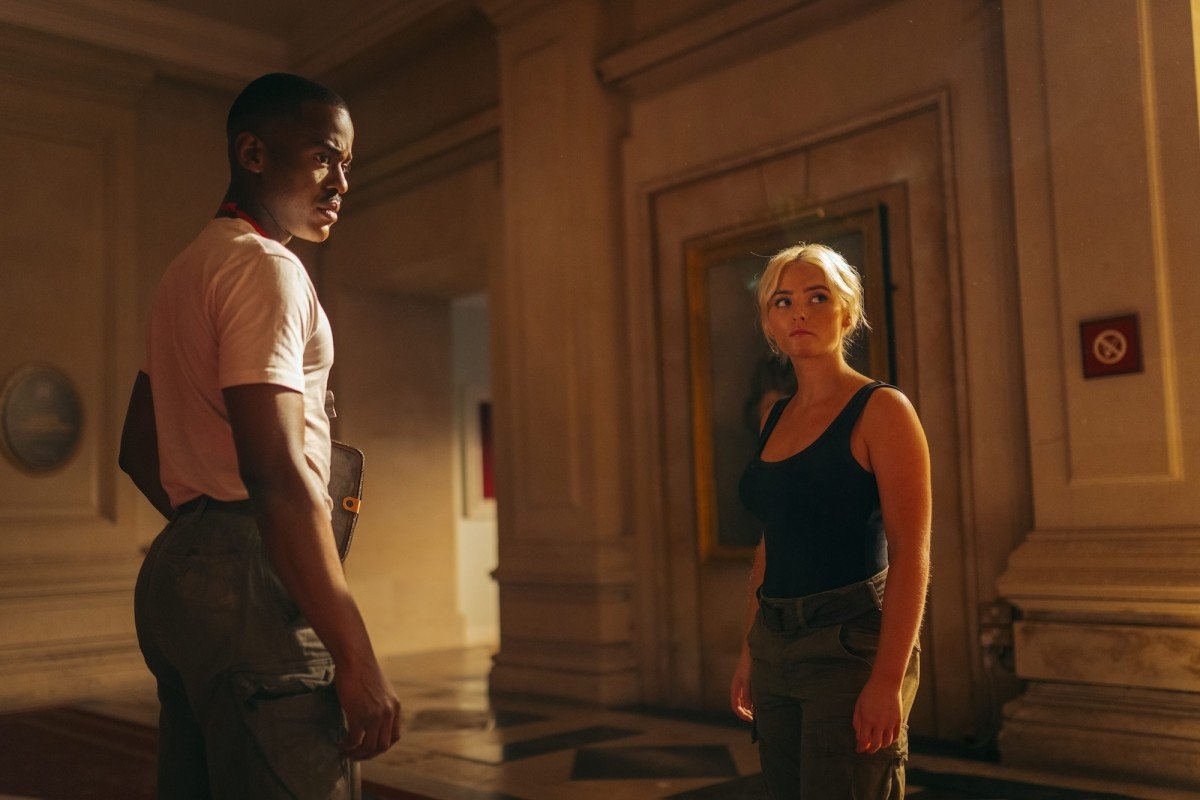
Jumping ahead a little, the ending of this episode was handled beautifully. The final 15 minutes of the episode moved me so deeply, and that conversation between Ruby and her birth mother in the café was like a gut-punch – as was the Doctor turning away after Ruby tells him she loves him. Again: the performances! But also: the writing, direction, camera work… All of it. Yes, we know Ruby will be back, but as endings go in isolation, this was pure gold. Russell really knows how to write a compelling family drama, and this was one of his finest efforts on that front.
So what didn’t Empire of Death do very well? In a word, pacing. Whilst I did appreciate the immediacy of the situation – the entire planet being turned to dust in the first five minutes of the episode – there was a little bit of a lull after that (for more than a while). I was so anxious to get to the answers and the final showdown, and we spent a good chunk of the episode aboard the Memory TARDIS (so cool, by the way) coming up with a plan. This isn’t to say I didn’t still love this section, and that I don’t appreciate a story taking its time, but this felt a little too slow – especially after how masterfully the previous episode built up to the reveal, and how immediately we hit the ground running here. This balances out as the episode progresses, but it was quite noticeable and jarring on my first watch-through.
But pacing aside, I think it’s time to talk about the reveal. Ruby’s mother is no one. She is an ordinary woman, who just happened to own the most villainous cloak ever and likes to point at street signs when no one is watching. To be clear: I like the reveal. The Doctor himself (when he looked like Matt Smith) said that he has “never met anybody who wasn’t important before,” and I like looking at this through that lens. I also don’t mind a bit of bait-and-switch – a good mystery should have red herrings, and it shouldn’t be obvious from word go.
But.
The idea that every clue this season was put there purely to mess with the audience and throw them off the trail is… disheartening. It felt as though Russell was punishing us for theorising, yet all the while dropping the Trickster’s theme here, and Ruby’s mother not being on any DNA database in the world there… and then Ruby gets sucked into a pocket dimension/alternate timeline and still retains some subconscious memories of it later. The list goes on. Reaching the end of this season-long mystery and being told “oh, you actually believed all of those clues we dropped? Well, you shouldn’t have!” is very poor writing, and actively makes me not want to theorise in the future.
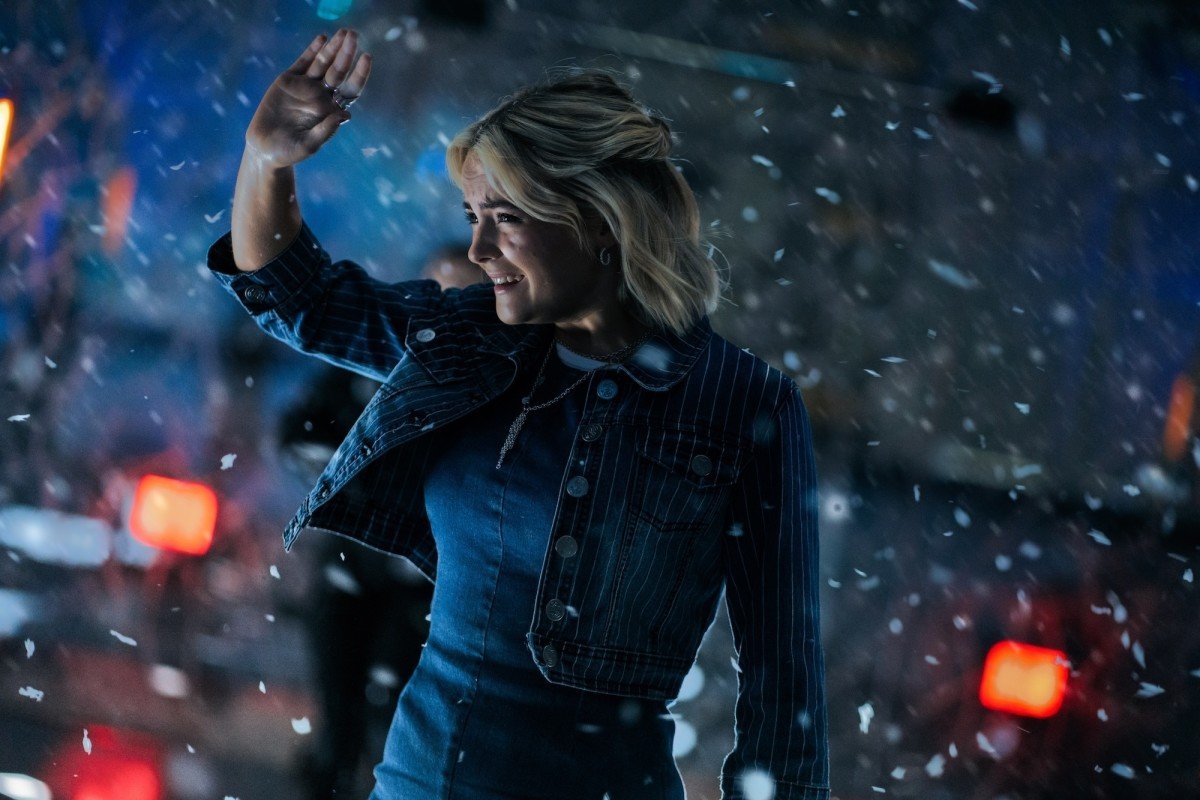
Take Mrs. Flood for example. No, she isn’t Clara, or Romana, or River, but why should I stay invested in this mystery now when it could turn out she’s just another massive red herring that won’t pay off? Why should I get invested in the second season and follow whatever mysteries pop up there week-to-week when the reveal at the end is simply “here is all of the information you as the audience didn’t have (because we were purposely hiding the street sign from you) and that’s the answer and you were silly for thinking it would be someone important”?
Again: I don’t hate the reveal that Ruby is “no one” and her mother is normal – that sits fine with me. But it’s the manner in which it was unravelled and revealed that I take big issue with. I am a big murder mystery/thriller fan, and one of the best feelings in the world is piecing together the answer alongside (or sometimes before!) the detective/central character, and then getting a satisfying payoff at the end, whether you were right or wrong. You feel like you’re along for the ride, and part of the story, and that is something Russell missed when he wrote this “you read too much into the clues we fed you” ending. The focus was too much on being meta, and while I am usually a big fan of this (and the themes here, of not putting too much meaning into every little thing), there needed to be a lot more explanation in the script for all of this.
Whilst it may seem as though I hated this episode, or I am never returning to watch Doctor Who again, that isn’t the case. I loved this season, and I just think the finale dropped the ball a little. Even my favourite seasons of the show (Series 1 with Christopher Eccleston, and Series 10 with Peter Capaldi and Pearl Mackie) have low points, and every single Russell-penned finale has some kind of contrivance/deus-ex-machina that saves the day and doesn’t sit well with audiences. Didn’t they defeat the Master with the power of prayer? That’s so goofy, but also so… Russell. And I love it.
The online discourse around this episode is too harsh, and I am well aware that my dislikes outweighed my positives, but it really does all come down to one decision in the writing for me. The 40 minutes leading to that reveal, and the 15 following it? Outstanding. The most Doctor Who that Doctor Who has felt in years. So yes, I may have my hang-ups here and there, but you bet your life I am still full steam ahead towards Steven Moffat’s Christmas Special, and I’ll be firmly planted on the couch the second Series 41/Series 15/Season 2 drops in 2025.
